Through the vibrant tapestry of African spirituality, divine figures of wealth and abundance have shaped cultures, guided commerce, and inspired generations to seek prosperity with purpose and wisdom. The continent’s rich spiritual landscape is adorned with deities who embody the essence of wealth, each weaving their unique threads into the fabric of African traditions and beliefs.
In many African cultures, wealth is not merely a material concept but a holistic state of being that encompasses spiritual, social, and economic well-being. The deities associated with wealth and abundance play a crucial role in maintaining the delicate balance between these aspects of life. They serve as guides, protectors, and inspirations for those seeking to improve their fortunes and contribute to the prosperity of their communities.
Among these divine figures, Aje, the Yoruba goddess of wealth, stands out as a powerful symbol of abundance and economic prowess. Her influence extends far beyond the realms of material riches, touching upon the very foundations of commerce, trade, and financial wisdom in Yoruba society.
Aje: The Yoruba Goddess of Wealth
Aje, often referred to as the “Mother of Wealth,” holds a special place in the pantheon of Yoruba deities. Her origins are deeply rooted in the mythology and oral traditions of the Yoruba people, who primarily inhabit parts of Nigeria, Benin, and Togo. According to legend, Aje was one of the primordial Orishas (deities) sent by Olodumare, the supreme god, to help shape and populate the earth.
In Yoruba culture, Aje is not merely a passive symbol of wealth but an active force that influences the ebb and flow of economic prosperity. She is believed to have the power to bestow riches upon her devotees and to guide them in making wise financial decisions. Her role extends beyond individual wealth, as she is also seen as a guardian of communal resources and a promoter of fair trade practices.
The representation of Aje in Yoruba art and iconography is rich with symbolism. She is often depicted as a beautiful woman adorned with cowrie shells, which were once used as currency in many parts of Africa. In some representations, she holds a calabash or a basket, symbolizing the abundance she brings to her followers. The color green is frequently associated with Aje, representing growth, fertility, and the lush prosperity she promises.
Rituals and offerings to Aje are an integral part of Yoruba spiritual practice. Devotees may set up altars in her honor, adorned with items that symbolize wealth and abundance. Common offerings include honey, coconuts, and yellow or green candles. Some practitioners believe that Thursday is a particularly auspicious day to make offerings to Aje, as it is considered her sacred day.
Other African Goddesses of Wealth and Prosperity
While Aje holds a prominent position in Yoruba spirituality, she is not the only divine figure associated with wealth and abundance in African traditions. The continent’s diverse cultures have given rise to a pantheon of deities who embody various aspects of prosperity.
Oshun, another Yoruba deity, is often celebrated as the goddess of love, beauty, and wealth. Her domain extends to fresh waters, and she is associated with the life-giving properties of rivers and streams. Oshun’s connection to wealth is intrinsically linked to her ability to nurture and sustain life. Devotees often seek her blessings for both material prosperity and emotional fulfillment, recognizing the interconnectedness of these aspects of well-being.
Mami Wata, a water spirit revered in various West African cultures, is another powerful figure associated with fortune and abundance. Often depicted as a mermaid or a woman with serpentine lower body, Mami Wata is believed to bring good luck, wealth, and healing to those who honor her. Her influence extends beyond the African continent, with variations of her worship found in parts of the Caribbean and South America.
In African Hindu communities, particularly those with roots in the Indian diaspora, Lakshmi, the goddess of wealth, is widely revered. While not originally an African deity, Lakshmi’s worship has been seamlessly integrated into the spiritual practices of many African Hindus. Her presence highlights the dynamic nature of African spirituality and its ability to incorporate diverse influences.
The Role of Wealth Goddesses in African Spirituality
The concept of wealth in African spiritual traditions often transcends material possessions. It encompasses a holistic view of prosperity that includes good health, harmonious relationships, and spiritual fulfillment. Wealth goddesses like Aje and Oshun are seen as guardians of this comprehensive well-being, guiding their devotees towards a balanced and prosperous life.
In many African cultures, the pursuit of wealth is not viewed as a purely individual endeavor but as a means to uplift the entire community. This communal aspect of prosperity is often reflected in the worship and invocation of wealth goddesses. Rituals and prayers often include requests for blessings not just for the individual, but for the family, clan, or entire village.
Balancing material and spiritual wealth is a central theme in the teachings associated with these divine figures. They remind us that true abundance comes from aligning our material pursuits with spiritual values such as generosity, compassion, and ethical conduct. This holistic approach to wealth serves as a guide for individuals navigating the complexities of modern economic systems while staying true to their cultural and spiritual roots.
Invoking wealth goddesses for personal and community prosperity remains a common practice in many African societies. These invocations often take the form of elaborate ceremonies, featuring music, dance, and offerings. Such rituals serve not only as a means of seeking divine favor but also as a way of reinforcing community bonds and cultural identity.
Modern Worship and Reverence of African Wealth Goddesses
In contemporary Africa and among diaspora communities worldwide, the worship of wealth goddesses has evolved to meet the needs and realities of modern life. While traditional rituals and practices continue, there has been a notable adaptation of these spiritual traditions to urban settings and global contexts.
Many practitioners now incorporate elements of wealth goddess worship into their daily lives through personal altars, meditation practices, and the use of symbols associated with these deities. For instance, a business owner might keep a small statue of Aje in their office, or an entrepreneur might wear jewelry featuring symbols associated with Oshun.
The influence of African wealth goddesses on art and culture remains strong. Contemporary African artists often draw inspiration from these divine figures, creating works that blend traditional iconography with modern aesthetics. This artistic expression serves as a bridge between ancient wisdom and contemporary sensibilities, keeping the essence of these spiritual traditions alive and relevant.
In diaspora communities, the worship of African wealth goddesses has taken on new dimensions. It often serves as a way for people of African descent to connect with their cultural heritage and find spiritual guidance in navigating the economic challenges of their adopted homes. This has led to the establishment of temples, cultural centers, and online communities dedicated to the study and practice of African spiritual traditions.
Lessons from African Goddesses of Wealth
The teachings associated with African goddesses of wealth offer valuable insights that can be applied to modern life, regardless of one’s cultural background or spiritual beliefs. At the core of these teachings is the principle of abundance and generosity. These divine figures remind us that true wealth lies not in hoarding resources but in the free flow of blessings – both given and received.
Ethical wealth accumulation and distribution are central themes in the stories and rituals surrounding these goddesses. They teach us that prosperity should be pursued in ways that benefit the wider community and do not come at the expense of others or the environment. This principle of ethical wealth aligns closely with modern concepts of sustainable development and corporate social responsibility.
Applying the teachings of wealth goddesses in daily life can take many forms. It might involve setting intentions for prosperity that go beyond personal gain, practicing gratitude for the abundance already present in one’s life, or engaging in acts of generosity that create a cycle of giving and receiving. These practices can help foster a more balanced and fulfilling approach to wealth and success.
Wealth charms and rituals inspired by these traditions can serve as powerful reminders of our connection to the spiritual dimensions of prosperity. However, it’s important to approach such practices with respect and understanding, recognizing their cultural significance and deeper meanings.
The wisdom of African wealth goddesses also emphasizes the importance of patience and perseverance in the pursuit of prosperity. Success is often portrayed not as an overnight achievement but as the result of consistent effort, wise choices, and alignment with one’s higher purpose.
The Global Influence of African Wealth Deities
The influence of African wealth deities extends far beyond the continent’s borders, interweaving with global narratives of prosperity and abundance. This cross-cultural exchange has led to fascinating comparisons and connections with wealth gods from other traditions, enriching our understanding of how different cultures conceptualize and pursue prosperity.
For instance, the principles embodied by Aje and Oshun find echoes in the attributes of wealth deities from other parts of the world. The Greek god Plutus, known for his association with wealth and abundance, shares some similarities with African wealth deities in his role as a dispenser of riches. However, while Plutus is often depicted as blind – symbolizing the arbitrary nature of wealth distribution – African wealth goddesses are typically portrayed as discerning and intentional in their bestowal of blessings.
Similarly, Chinese gods of wealth like Caishen offer interesting parallels to African wealth deities. Both traditions emphasize the importance of honoring these divine figures to attract prosperity. However, the specific rituals and symbols associated with wealth worship differ significantly, reflecting the unique cultural contexts from which they emerge.
In the realm of Buddhism, figures like Jambhala, the Buddhist god of wealth, present yet another perspective on divine prosperity. While African wealth goddesses often emphasize the communal aspects of abundance, Buddhist teachings on wealth tend to focus more on the importance of detachment and the use of resources for spiritual growth.
This global tapestry of wealth deities highlights the universal human desire for prosperity while showcasing the diverse ways in which different cultures approach this aspiration. It also underscores the potential for cross-cultural dialogue and mutual understanding through the exploration of these spiritual traditions.
The Continuing Relevance of African Wealth Goddesses
In our rapidly changing world, the teachings and symbolism of African wealth goddesses continue to offer relevant guidance and inspiration. Their emphasis on holistic prosperity – encompassing material, spiritual, and social well-being – resonates with contemporary discussions about work-life balance, mindful consumption, and sustainable development.
These divine figures remind us that wealth is not merely about accumulation but about circulation and contribution. In an era marked by growing economic disparities, this perspective offers a valuable counterpoint to purely individualistic notions of success.
Moreover, the reverence for wealth goddesses in African traditions highlights the often-overlooked role of women in shaping economic and spiritual life. This aspect of African spirituality can contribute to ongoing conversations about gender equality and women’s empowerment in economic spheres.
For those of African descent living in diaspora communities, connecting with these spiritual traditions can be a powerful means of reclaiming cultural heritage and finding strength in ancestral wisdom. It offers a way to navigate the complexities of modern life while staying rooted in rich cultural traditions.
Even for those not directly connected to African spiritual traditions, exploring these divine figures of wealth can broaden perspectives on prosperity and success. It invites us to consider alternative models of economic organization that prioritize community well-being and spiritual fulfillment alongside material growth.
As we continue to grapple with global economic challenges and seek more equitable and sustainable ways of creating and distributing wealth, the wisdom embodied by African goddesses of wealth offers valuable insights. Their teachings encourage us to view prosperity not as a zero-sum game, but as a divine blessing that can be cultivated and shared for the benefit of all.
In conclusion, the exploration of African goddesses of wealth opens up a rich tapestry of cultural wisdom, spiritual insight, and practical guidance. From the powerful presence of Aje in Yoruba tradition to the diverse pantheon of prosperity deities across the continent, these divine figures offer a nuanced and holistic approach to understanding wealth and abundance.
Their continuing relevance in modern society speaks to the enduring human quest for prosperity and the deep-seated need for spiritual guidance in navigating the complexities of economic life. As we move forward in an increasingly interconnected world, the teachings of these goddesses remind us of the importance of balancing material pursuits with spiritual values, ethical considerations, and communal well-being.
By delving into these traditions, we not only gain a deeper appreciation for the richness of African spirituality but also uncover universal truths about the nature of wealth and abundance. Whether viewed through a cultural, spiritual, or philosophical lens, the wisdom of African wealth goddesses continues to offer valuable lessons for all who seek to cultivate true prosperity in their lives and communities.
As we conclude this exploration, we are invited to reflect on our own relationship with wealth and abundance. How might the principles embodied by these divine figures inform our approach to success and prosperity? In what ways can we incorporate their teachings into our daily lives, fostering a more balanced and fulfilling relationship with the material world?
The journey into the realm of African wealth goddesses is more than an academic exercise; it is an invitation to expand our understanding of prosperity and to consider the profound interconnectedness of spiritual and material abundance. As we navigate the challenges and opportunities of our modern world, may we draw inspiration from these timeless traditions, finding in them a source of wisdom, guidance, and hope for a more prosperous and harmonious future for all.
References:
1. Olupona, J. K. (2014). African Religions: A Very Short Introduction. Oxford University Press.
2. Falola, T., & Akinyemi, A. (Eds.). (2016). Encyclopedia of the Yoruba. Indiana University Press.
3. Badejo, D. L. (1996). Oshun: The Elegant Goddess of Wealth, Power, and Love. Africa World Press.
4. Drewal, H. J. (2008). Mami Wata: Arts for Water Spirits in Africa and Its Diasporas. UCLA Fowler Museum of Cultural History.
5. Olajubu, O. (2003). Women in the Yoruba Religious Sphere. State University of New York Press.
6. Neimark, P. J. (1993). The Way of the Orisa: Empowering Your Life Through the Ancient African Religion of Ifa. HarperOne.
7. Murphy, J. M., & Sanford, M. M. (Eds.). (2001). Osun Across the Waters: A Yoruba Goddess in Africa and the Americas. Indiana University Press.
8. Ademuleya, B. A. (2007). The Concept of Ori in the Traditional Yoruba Visual Representation of Human Figures. African Arts, 40(2), 36-49.
9. Olupona, J. K., & Rey, T. (Eds.). (2008). Orisa Devotion as World Religion: The Globalization of Yoruba Religious Culture. University of Wisconsin Press.
10. Ajibade, G. O. (2005). Aje: Yoruba Concept of Wealth. Africana Studies, 1(1), 69-83.

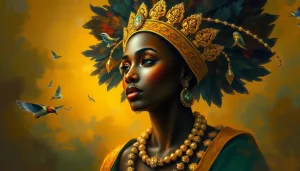

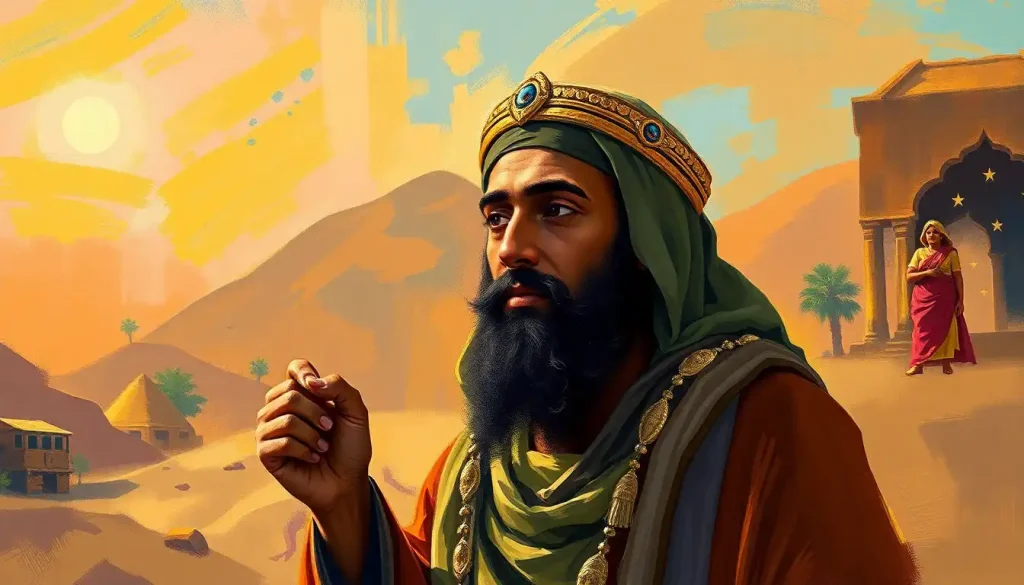
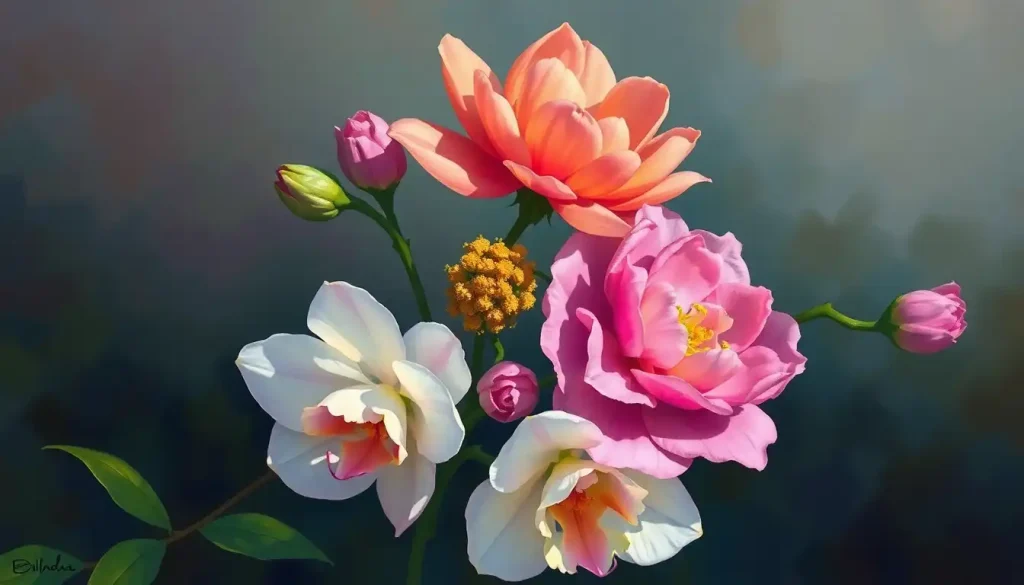
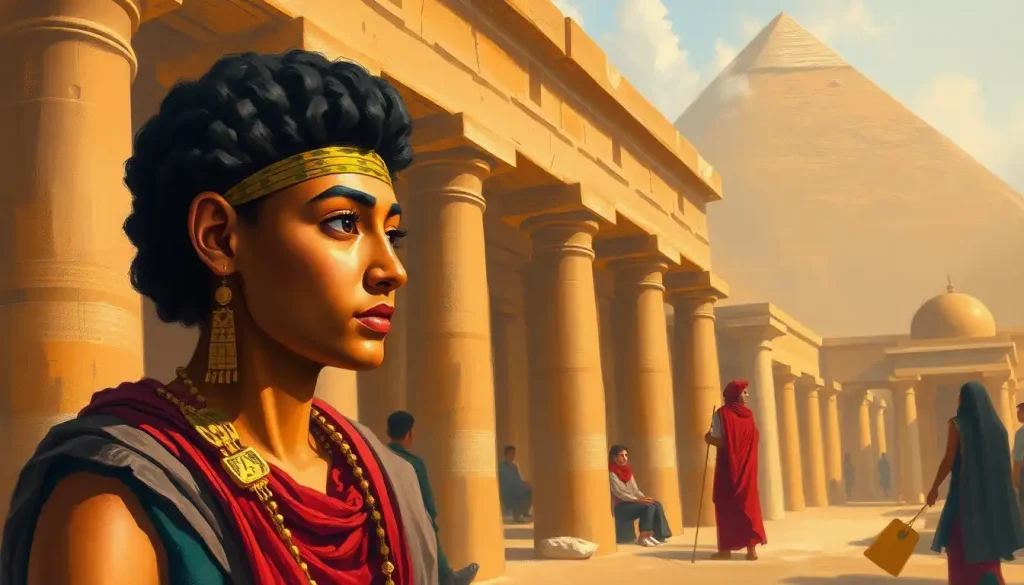
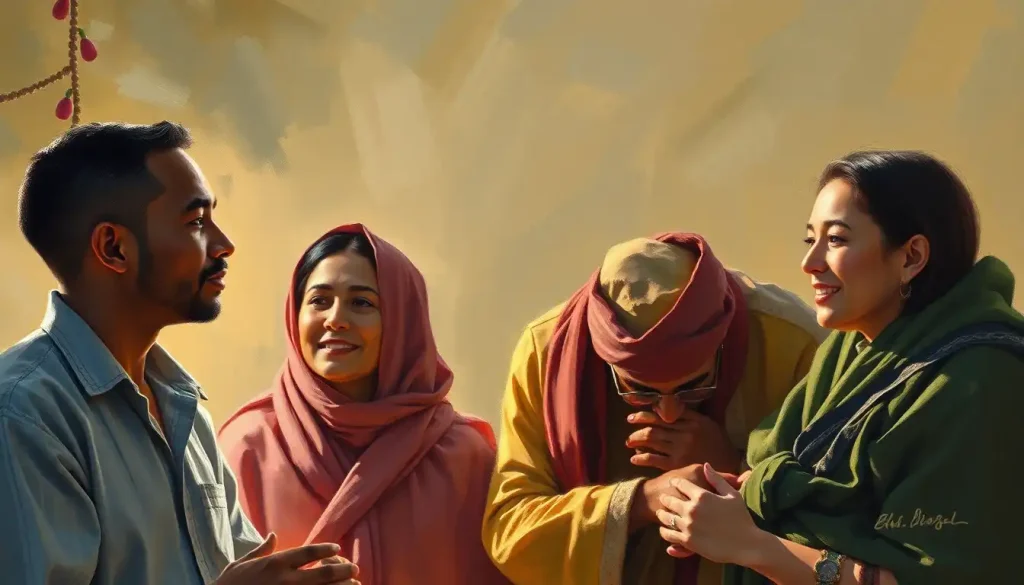





Would you like to add any comments? (optional)